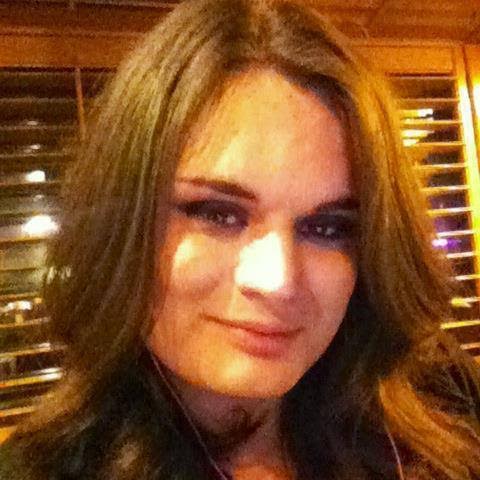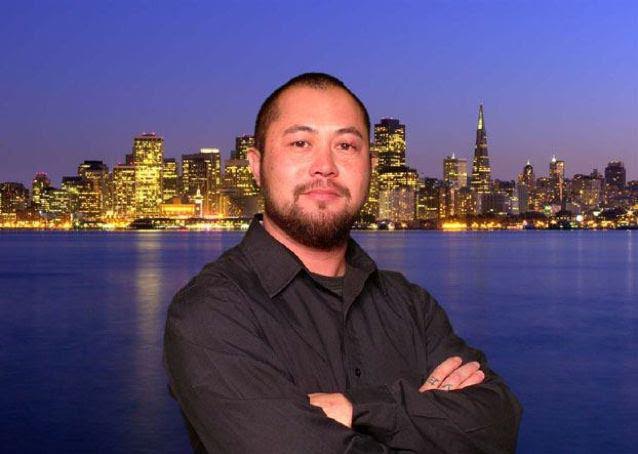Jennifer Gable died in October 2014 at the age of 32, from an unexpected aneurysm. When her friends attended her funeral, they were outraged to see that she was displayed in the casket wearing a man’s suit, no makeup, and her hair had been cut. At no point during the service was her female identity even mentioned.

Jennifer was a transgender woman who had legally changed her name in 2007. She had been living and working as a woman for years, and had cultivated a community who knew her and loved her as the woman she was.
The funeral director was quoted in the media saying that he’d done what he was legally bound to do, and was honoring the wishes of the next of kin, despite Gable’s legal name change. And he was right. Funeral arrangements fell to her father, from whom she was estranged.
Christopher Lee was a transgender man who died in 2012 at the age of 48. He was well-known in the trans community as an activist, and was the cofounder of the Transgender Film Festival. He had been living as male for 20 years, and had a driver’s license that matched that identity.
After he was cremated, his best friend, Chino Lee Scott-Chung, picked up his ashes and discovered that Lee’s death certificate listed him as a female named “Jane.”** Scott-Chung has said, “Christopher lived his life in all ways as a man for almost 20 years…. Misgendering his death certificate erased his history and hard-won identity.”
The outcry over the misgendering of Christopher Lee was the catalyst that resulted in the changing of the law in California on July 1, 2015. The Respect After Death Act, drafted by Speaker of the Assembly Toni Atkins and signed into law by California governor Jerry Brown, allows for the recording of gender identity on a death certificate rather than the sex assigned at birth if an updated driver’s license, a court order approving a name or gender change, a passport, or an advance directive, among other documents, are provided.

Masen Davis, executive director of the Transgender Law Center, which sponsored the bill, has said, “Gender identity represents a core part of who we are as people, and this identity should be recognized even upon our deaths. When a loved one is not honored as their authentic self upon their passing it is extremely painful for the family, friends, and community.”
In October 2015, D.C. Council member Mary Cheh introduced The Death Certificate Gender Identity Recognition Amendment Act of 2015 in Washington D. C. If passed, this would serve the same purpose for the D.C. trans community as California’s Respect After Death Act and, in addition, protects the person filling out the death certificate for any liability for how the decedent’s sex is recorded.
FUNERAL DIRECTOR PERSPECTIVES
Jeff Jorgenson of Elemental Cremation & Burial in Seattle said that there was nothing in his funeral-director education that specifically addressed gender identity. He also emphasized that the family, not the deceased, is the client of the funeral home. He can act only with the wishes of the person who has the right of disposition, he explained, “We cannot present a person who identifies as female as a female if the family doesn’t wish it…. The family could want them dressed in a Wookiee suit riding on a plastic carnival unicorn, and we would oblige, assuming they paid accordingly.”
Sarah Wambold, an Austin funeral director and green-burial expert, echoes that thought. Without any plans set in place by the deceased, the family gets whatever they want. She does add, however, that “exploring what is uncomfortable to accept with the family allows for a really personal discussion that they don’t get a chance to have anywhere else. It can be really cathartic and an important step for them in their grieving.”
Sixth-generation funeral director Caleb Wilde is known for his popular blog Confessions of a Funeral Director, on which he’s stated, in the context of LGBT rights, “I believe that those who love us in life should be the ones who take care of us in death.” He never received any gender-identification training, also pointing out that most funeral directors serve the 60-to-90-year old demographic. He said, “It’s safe to say that the funeral industry is about 20 to 30 years behind today’s cultural concerns, and so is its mortuary training.”
TRANS PERSPECTIVES
Some transgender folk were asked if they were aware of what they can do to make sure this doesn’t happen to them. Rachel, a Wisconsin transwoman, said she’s not aware of anything she could do to ensure her gender is honored after her death other than rely on her wife to make respectful arrangements.
Rachel’s wife is Helen Boyd, an author and lecturer in gender studies. When asked if they’d taken any steps to ensure that Rachel would have the appropriate death certificate and funeral someday, Boyd replied, “We’re unaware there are any, besides getting wills, which we don’t have.”
It’s a common misconception that any wishes about a funeral should go in a will. But Joshua Slocum, executive director of the Funeral Consumer’s Alliance, says, “A will is not the place for your funeral wishes. It’s often not read or accessible until after the burial. Never rely on a will for anything to do with body disposition.”
Devon, a Long Island transman, said he’s not aware of anything he could do, aside from rely on his sister and partner to do the right thing.
Despite not having taken any steps, Devon is passionate about the topic, adding, “For someone who is trans, their life experience is that of the trans experience, which is pivotal to who they are. People are being killed because they are trans; people are killing themselves because they are trans. To erase who someone is by not acknowledging that they are trans is erasing who they are, what roads they’ve traveled. Silencing their presence is an act of violence not only on the individual, but on the community as a whole.”
Devon’s partner is Tawni J. Engel, assistant director at Pride for Youth Crisis Center, serving the Long Island LGBT community. Devon chooses to keep his birth certificate and driver’s license marked as female as a political statement, which could cause misgendering issues in the event of his death. Imaging how it would be if, after his death, Devon were displayed as a woman, or his death certificate was marked female, Engel answered, “I would be horrified and sick to my stomach because I know how mortified he would be.”
Elizabeth Kneissel, a Brooklyn transwoman, said that she has given thought to her gender being an issue after her death, and that she was concerned about it. She said she hopes she still has time to figure it out, and also is confident her wife would make sure it was all done correctly.
This was a common theme in all the conversations: assuming they would die before their partners who would handle the arrangements, and also knowing they should do something, but not sure what.
WHAT CAN BE DONE
One available legal document is an advance directive, which is actually two main documents: a living will, which contains instructions about medical care, and a medical power of attorney (or health-care proxy) in which you can appoint a person to make medical decisions upon your behalf.
The Transgender Law Center offers a document that is transgender-specific on their website, meaning that it contains sections not included on most living wills. This allows you to “make clear what name and pronouns should be used for you if you become incapacitated and how you want to be dressed and groomed in a hospital, assisted-living facility, or funeral home. Making your wishes clear prevents any confusion and inhibits a family member from making a decision that is not in your best interest.” They also point out that “even the most well-meaning health-care providers or funeral directors may not be able to consider the advice of a close friend … the same is true of someone you are dating or living with if they are not your spouse or domestic partner.” As an added safeguard, they include a section called “People That Should Have No Authority” where you can list those you don’t want to make medical decisions for you.
According to Lambda Legal, however, only some states allow you to empower the health-care proxy to make funeral-related decisions. And Brooklyn funeral director Amy Cunningham emphasizes, “Power of Attorney, which is often the main feature of an advance directive, expires at death. So if the domestic partner has Power of Attorney, parents could still conceivably barge in and take charge of the funeral.”
Poul Lemasters, funeral director, embalmer, lawyer, and advisor to the International Cemetery, Cremation, and Funeral Association, who specializes in legal counsel to the death-care industry, believes that another problem with advance directives is that people often don’t get specific enough when they fill them out, and can sometimes be tripped up by how extensive they are.
So, while advance directives may be the answer for some, particularly about medical decisions, they may not be the ideal solution for trans people wanting to make sure they are not misgendered after their deaths.
Cunningham strongly recommends the lesser-known Appointment of Agent to Control Disposition of Remains form over an advance directive. Funeral Director Caleb Wilde agrees, saying, “If a trans person doesn’t trust their family and friends to honor their identity, they should find someone they do trust and appoint them as their ‘funeral agent.’”
The Funeral Consumers Alliance has a detailed state-by-state list regarding Personal Preference Laws for Body Disposition, which indicates that most states will honor that form to appoint someone other than a spouse or the next-of-kin to make decisions about your body disposition and funeral arrangements. The rights of the funeral agent supersede the rights of all others, including the spouse and other relatives such as children and parents. This is where specific instructions about a viewing, makeup and dress preferences, and specific funeral home and cemetery could be added. It’s a lot shorter and less complicated than an advance directive, so people overwhelmed by those might be more likely to actually tackle this form.
Poul Lemasters also believes the appointment of agent form is the best choice for this situation, and he’s written them up for every state in his law practice. After learning about the posthumous misgendering of Jennifer Gable and Christopher Lee, Lemasters revised his appointment of agent forms for each state to add some language to make the power of the agent broader and more clearly defined regarding the planning of funeral arrangements and providing information for death certificates. He emphasized that if Jennifer Gable had had one of these, her father would not have been able to intrude on the arrangements.
It’s not right that after fighting for the recognition of their authentic gender in life, that a transperson’s identity be denied in death. A funeral should be an emphatic punctuation mark for a life authentically lived, a way for communities to celebrate and honor someone — not an erasure of what was fought for. If this final indignity can be avoided by filling out a simple form, then everyone should do this to help ensure that your body disposition and funeral is handled properly, and that your loved ones and chosen community can honor your passing in a way that’s appropriate and respectful of the life lived.
Links:
LemastersConsulting.com. (Use promo code DEATHSALON to get his Appointment of Agent forms for free.)
Death Certificate Gender Identity Recognition Amendment Act of 2015
Transgender Law Center End of Life Documents
** Name has been changed to protect their privacy.
Christine Colby is a New York City–based writer and editor and is the managing editor of Investigation Discovery‘s true-crime site, CrimeFeed.com. Other bylines include Penthouse magazine, Fangoria magazine, Refinery 29, Noisey, Broadly, mental_floss, and Hyperallergic. She has been a speaker at Death Salon L.A. and Death Salon Mütter Museum. In January 2017, she is launching a regular column on LifeHacker.com called DeathHacker: Helping People Die Their Very Best Deaths.


